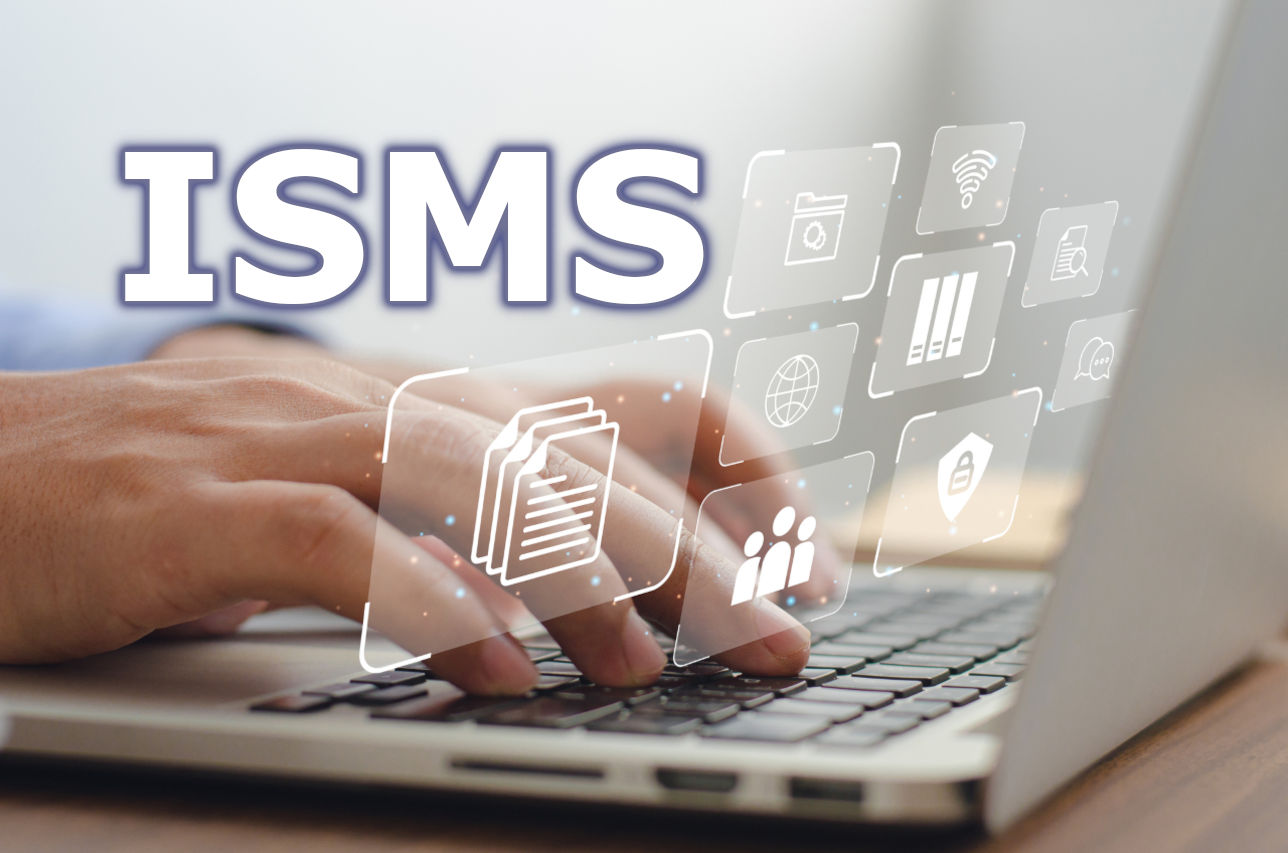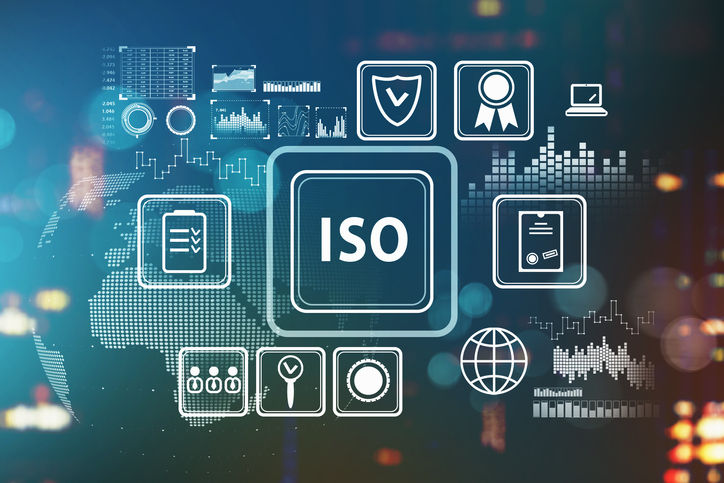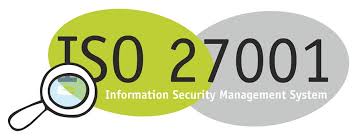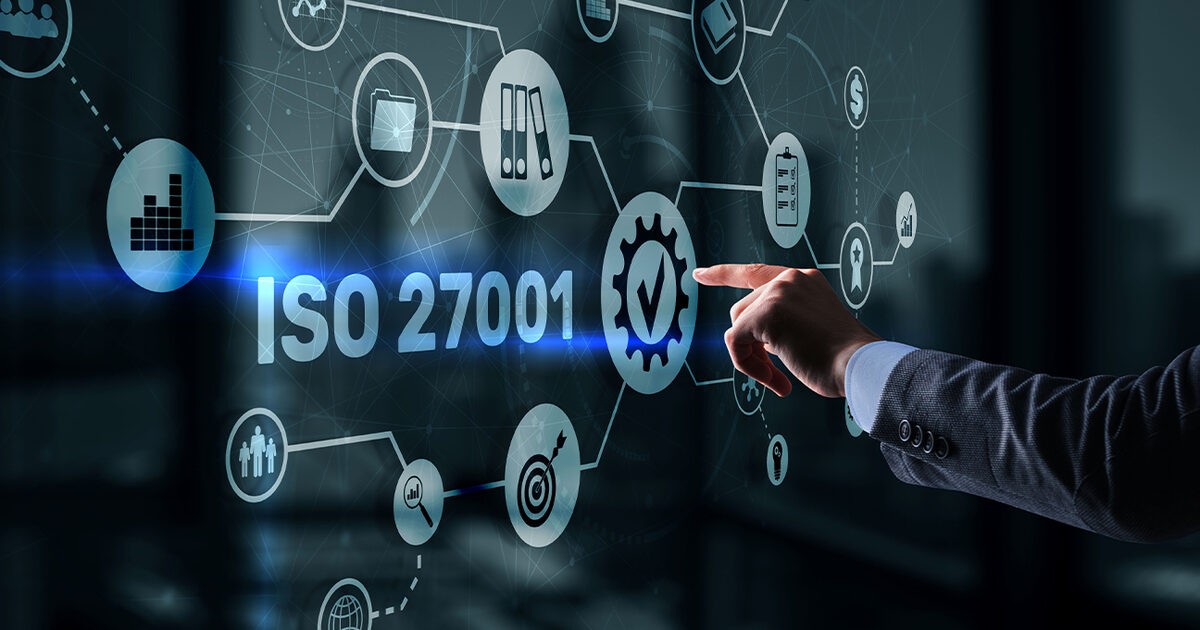ISO 27001 Consultancy
What is ISO 27001?
ISO 27001 stands as the cornerstone of information security management systems (ISMS), providing a comprehensive framework for organizations to safeguard their sensitive information assets. Born out of the need to address the evolving landscape of cybersecurity threats, ISO 27001 sets forth internationally recognized best practices for establishing, implementing, maintaining, and continually improving an ISMS. At its core, ISO 27001 is designed to help organizations systematically identify, assess, and mitigate information security risks, thereby reducing the likelihood of data breaches, cyberattacks, and other security incidents.
Achieving ISO 27001 certification signifies an organization's commitment to proactively managing information security risks and ensuring the confidentiality, integrity, and availability of its data assets. By adhering to the requirements outlined in the standard, organizations can establish robust controls, policies, and procedures tailored to their unique business needs and risk profiles. ISO 27001 certification not only instills confidence among stakeholders, customers, and partners but also serves as a competitive differentiator in today's digital landscape, where trust and security are paramount. In essence, ISO 27001 empowers organizations to build a resilient security posture, adapt to emerging threats, and demonstrate compliance with regulatory requirements, fostering a culture of trust and accountability across the enterprise. For more information on Fundamentals Of ISO 27001, we can discuss further.
What is the latest version of ISO27001?
The latest version of the ISO 27001 standard is ISO/IEC 27001:2022. This version was published in October 2013 and is the current edition of the standard for information security management systems (ISMS).
It's worth noting that ISO standards are periodically reviewed and updated to ensure their relevance and effectiveness in addressing evolving challenges and technologies in the field of information security. While ISO/IEC 27001:2022remains the latest version as of my last update, it's essential for organizations to stay informed about any revisions or updates to the standard that may occur in the future.
To ensure compliance with the latest version of ISO 27001 and to stay up-to-date with the latest developments in information security standards, organizations should monitor announcements from the International Organization for Standardization (ISO) and relevant industry publications for any updates or revisions to the standard. Here is the Comparison of ISO27001:2013 and ISO27001:2022. Many industries are struggling to decide whether to Go For ISO27001:2022 Immediately or Wait?
Why industries go for ISO 27001 compliance?
Industries worldwide are increasingly turning to ISO 27001 compliance as a cornerstone of their information security strategies, driven by compelling research-backed insights. At Valency Networks, our expertise is informed by the latest industry data and statistics, shedding light on why industries are embracing ISO 27001 compliance with fervor.
Data Breach Costs:
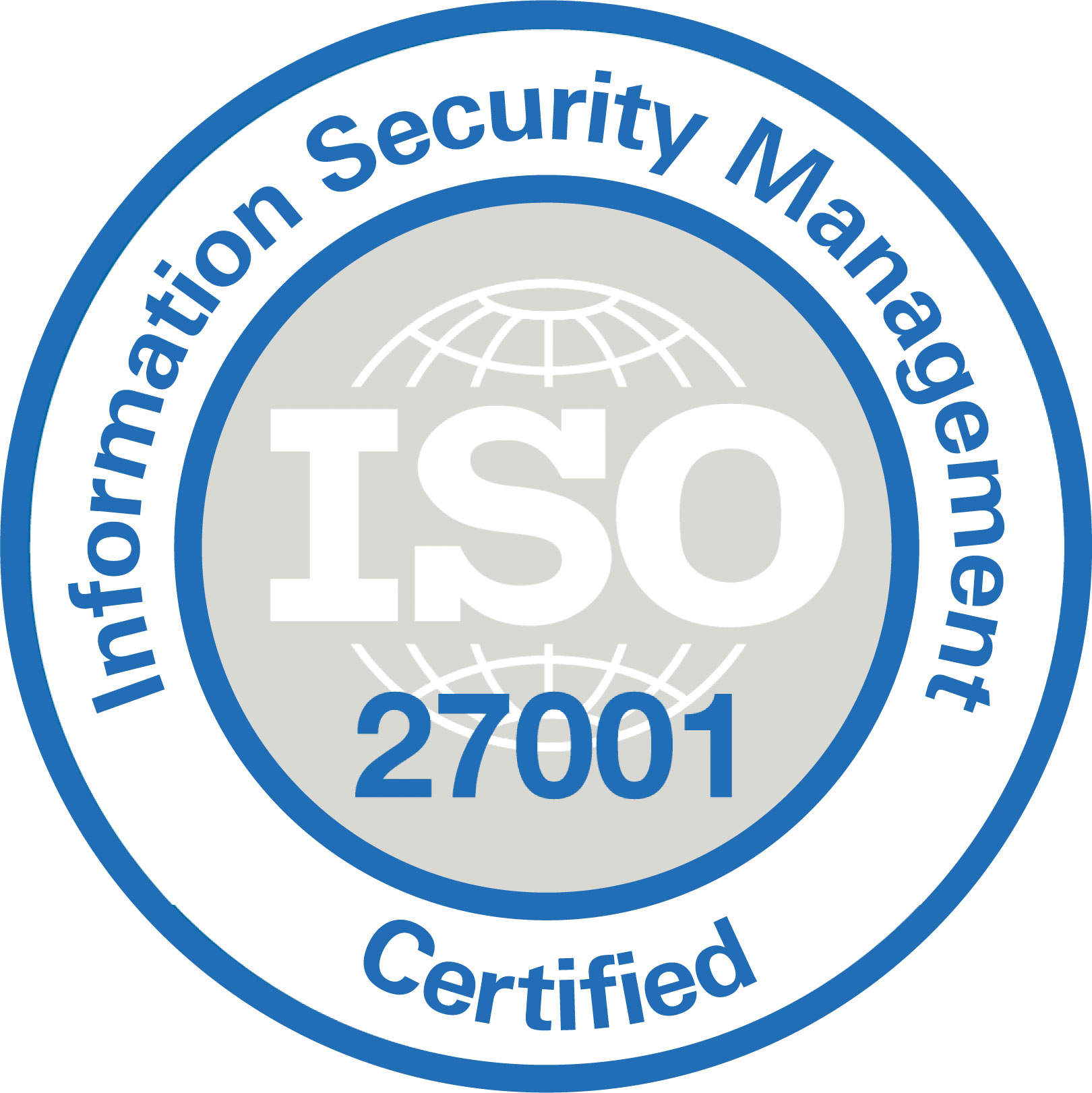
According to the Ponemon Institute, the average cost of a data breach in 2021 reached a staggering $4.24 million globally. Industries across sectors face the daunting reality of potential financial losses and reputational damage in the event of a breach. ISO 27001 compliance offers a proactive approach to mitigating these risks, providing a robust framework for identifying and addressing vulnerabilities before they escalate into costly incidents.
Regulatory Landscape:
A survey conducted by PwC revealed that 85% of organizations view compliance with data protection regulations as a top priority. With the introduction of stringent regulations such as GDPR and CCPA, industries are under increasing pressure to safeguard customer data and maintain regulatory compliance. ISO 27001 certification serves as a tangible demonstration of an organization's commitment to meeting and exceeding these regulatory obligations, instilling trust among customers and regulatory authorities alike.
Competitive Differentiation:
Research from the International Organization for Standardization (ISO) indicates that ISO 27001 certification is recognized and respected globally, providing industries with a competitive edge in the marketplace. By aligning with ISO 27001 standards, industries can differentiate themselves as leaders in information security, attracting discerning customers who prioritize data protection and privacy. This competitive advantage can translate into increased market share, revenue growth, and enhanced brand reputation.
Risk Management:
A study by the Information Systems Audit and Control Association (ISACA) found that 96% of organizations consider information security to be crucial for business success. ISO 27001 compliance offers industries a structured approach to risk management, enabling them to identify, assess, and mitigate information security risks effectively. By implementing ISO 27001 standards, industries can proactively safeguard their assets, minimize the likelihood of security incidents, and reduce the associated costs and liabilities.
In conclusion, industries gravitate towards ISO 27001 compliance based on compelling research findings and industry statistics. Through our research-driven approach, Valency Networks empowers industries to harness the full potential of ISO 27001 compliance, safeguarding their assets, ensuring regulatory compliance, and gaining a competitive advantage in today's digital landscape.
Difference between information security and cyber security
At Valency Networks, we often encounter inquiries about the distinction between information security and cyber security. As experts in both fields, we understand the nuances that set these two disciplines apart.
Information Security:
Information security encompasses the protection of data from unauthorized access, use, disclosure, disruption, modification, or destruction. It is a broad discipline that focuses on safeguarding all forms of sensitive information, including electronic and physical data, regardless of the medium or format in which it is stored or transmitted. Information security measures aim to ensure the confidentiality, integrity, and availability of data, mitigating risks and protecting against potential threats, both internal and external.
Cyber Security:
Cyber security, on the other hand, is a subset of information security that specifically deals with protecting digital assets and systems from cyber threats. It encompasses the technologies, processes, and practices designed to defend against malicious actors and cyberattacks, such as malware, ransomware, phishing, and hacking. Cyber security measures often involve the use of specialized tools and techniques to detect, prevent, and respond to cyber threats in real-time, thereby safeguarding digital infrastructure, networks, and devices.
Key Differences:
1. Scope:
Information security encompasses a broader spectrum of data protection measures, including physical security, access controls, and risk management, whereas cyber security focuses specifically on defending digital assets and systems from cyber threats.
2. Focus:
Information security emphasizes the protection of all forms of sensitive information, whereas cyber security places a greater emphasis on defending against cyberattacks and malicious activities targeting digital networks, systems, and devices.
3. Approach:
Information security takes a holistic approach to data protection, considering both technological and non-technological factors, such as policies, procedures, and employee training, whereas cyber security adopts a more technology-centric approach, relying heavily on specialized tools and technologies to detect and mitigate cyber threats.
4. Evolution:
Information security has evolved over time to encompass a wide range of data protection measures, including traditional physical security measures and emerging technologies, whereas cyber security has emerged more recently as a response to the growing prevalence of cyber threats in the digital age.
While information security and cyber security are closely related disciplines, they differ in scope, focus, approach, and evolution. By understanding these distinctions, organizations can develop comprehensive strategies to safeguard their data and digital assets effectively.
How ISO 27001 helps in achieving both?
At Valency Networks, we firmly believe that ISO 27001 plays a pivotal role in helping organizations achieve both information security and cyber security objectives. Let's delve into how ISO 27001 contributes to bolstering defenses against cyber threats while enhancing overall information security posture.
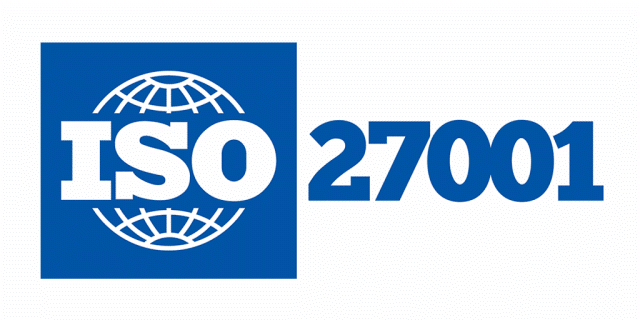
Comprehensive Risk Management:
ISO 27001 provides a systematic framework for identifying, assessing, and mitigating information security risks, encompassing both traditional information security concerns and emerging cyber threats. By conducting thorough risk assessments and implementing appropriate controls, organizations can effectively safeguard their sensitive data and digital assets from a wide range of threats, including cyberattacks, data breaches, and unauthorized access.
Holistic Approach to Security:
ISO 27001 takes a holistic approach to security, addressing both physical and digital aspects of information security. This comprehensive approach ensures that organizations not only protect their digital infrastructure and networks from cyber threats but also implement robust physical security measures to safeguard against unauthorized access to sensitive information and assets.
Cyber Security Controls:
ISO 27001 includes a set of controls specifically aimed at addressing cyber security risks and threats. These controls cover various aspects of cyber security, including network security, access control, incident management, and business continuity planning. By implementing these controls in accordance with ISO 27001 standards, organizations can strengthen their defenses against cyber threats and enhance their overall cyber security posture.
Continuous Improvement:
ISO 27001 emphasizes the importance of continual improvement in information security management. Through regular monitoring, review, and evaluation of security controls and processes, organizations can identify areas for enhancement and take proactive measures to address evolving cyber threats. This iterative approach to security ensures that organizations remain resilient and adaptive in the face of changing cyber security landscape.
Regulatory Compliance:
ISO 27001 certification demonstrates an organization's commitment to achieving and maintaining high standards of information security and cyber security. By attaining ISO 27001 certification, organizations can not only meet regulatory requirements but also instill confidence among customers, partners, and stakeholders regarding their ability to protect sensitive information and digital assets from cyber threats.
ISO 27001 serves as a cornerstone of both information security and cyber security efforts, providing organizations with a comprehensive framework for managing risks, implementing controls, and achieving regulatory compliance. By embracing ISO 27001 standards, organizations can enhance their resilience to cyber threats and strengthen their overall security posture in today's increasingly interconnected and digital world.
Importance of ISO 27001 Implementation
At Valency Networks, we advocate for the importance of ISO 27001 implementation backed by compelling research, statistics, and facts. As leaders in information security management systems (ISMS), we understand the transformative impact that ISO 27001 can have on organizations of all sizes and across diverse industries. Let's explore the evidence-based reasons why ISO 27001 implementation is paramount for safeguarding sensitive information, mitigating risks, and achieving business objectives.
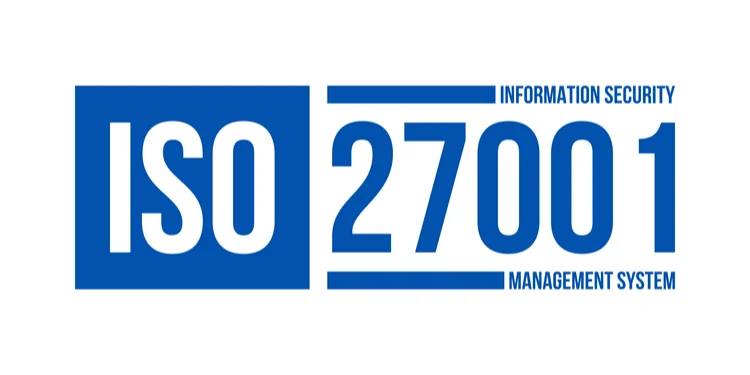
Enhanced Information Security:
Research conducted by the Ponemon Institute reveals that the average cost of a data breach in 2021 was $4.24 million globally. ISO 27001 implementation provides a robust framework for systematically identifying, assessing, and mitigating information security risks. By aligning with ISO 27001 standards, organizations can enhance the confidentiality, integrity, and availability of their sensitive information and digital assets, thereby minimizing the financial and reputational damage associated with data breaches.
Regulatory Compliance:
A survey conducted by PwC found that 85% of organizations view compliance with data protection regulations as a top priority. ISO 27001 certification demonstrates an organization's commitment to meeting and exceeding regulatory requirements related to information security. By implementing ISO 27001 standards, organizations can ensure compliance with regulations such as GDPR, HIPAA, CCPA, and others, thereby avoiding costly fines, penalties, and reputational damage associated with non-compliance.
Risk Management:
According to research by the Information Systems Audit and Control Association (ISACA), 96% of organizations consider information security to be crucial for business success. ISO 27001 provides a structured approach to risk management, enabling organizations to systematically identify, assess, and mitigate information security risks. By implementing controls and measures to mitigate identified risks, organizations can minimize the likelihood of security incidents and their potential consequences, thereby safeguarding their business operations and reputation.
Competitive Advantage:
Research from the International Organization for Standardization (ISO) indicates that ISO 27001 certification is recognized and respected globally. Organizations that achieve ISO 27001 certification demonstrate their commitment to protecting sensitive information and maintaining high standards of information security. ISO 27001 certification can enhance an organization's reputation, credibility, and competitiveness, opening up new business opportunities and giving them a competitive edge over non-certified competitors.
Customer Trust and Confidence:
According to a survey by Deloitte, 76% of consumers say they are more likely to trust companies that protect their data. ISO 27001 certification provides assurance to customers that their sensitive information is being handled and protected in accordance with internationally recognized standards for information security. By achieving ISO 27001 certification, organizations can build trust and confidence among customers, partners, and stakeholders, thereby strengthening their relationships and fostering long-term loyalty.
ISO 27001 implementation is backed by compelling research, statistics, and facts, highlighting its importance for enhancing information security, achieving regulatory compliance, managing risks effectively, gaining a competitive advantage, and building trust and confidence among stakeholders. Through our expertise and experience, Valency Networks helps organizations harness the power of ISO 27001 implementation to achieve their information security objectives and succeed in today's dynamic business environment.
Which companies go for ISO 27001 implementation?
We often field inquiries about the types of companies that pursue ISO 27001 implementation. As experts in information security management systems (ISMS), we understand the diverse range of organizations that recognize the value of ISO 27001 certification in safeguarding their sensitive information and digital assets. Let's explore the characteristics of companies that typically opt for ISO 27001 implementation.
1. Enterprises Handling Sensitive Data:
Companies that handle sensitive or confidential information, such as financial institutions, healthcare providers, and government agencies, are prime candidates for ISO 27001 implementation. These organizations recognize the critical importance of protecting sensitive data from unauthorized access, disclosure, or misuse, and seek ISO 27001 certification to demonstrate their commitment to information security best practices.
2. Technology and IT Services Providers:
Technology companies, IT services providers, and software development firms often pursue ISO 27001 certification to enhance the security of their digital products, services, and infrastructure. These organizations understand the importance of maintaining the confidentiality, integrity, and availability of their systems and data, especially in an environment rife with cyber threats and data breaches.
3. E-commerce and Online Retailers:
With the proliferation of e-commerce and online transactions, companies operating in the digital marketplace recognize the need to protect customer data and secure online transactions. E-commerce and online retailers often pursue ISO 27001 certification to instill trust and confidence among customers, demonstrate compliance with data protection regulations, and mitigate the risks associated with cyber threats and payment fraud.
4. Professional Services Firms:
Professional services firms, including consulting firms, law firms, and accounting firms, handle vast amounts of sensitive client information and intellectual property. These organizations prioritize the protection of client confidentiality and seek ISO 27001 certification to establish robust information security management systems, mitigate risks, and uphold the trust and confidence of their clients.
5. Supply Chain Partners and Vendors:
Companies that form part of complex supply chains or vendor networks understand the importance of information security in maintaining trust and integrity throughout the supply chain. These organizations may pursue ISO 27001 certification to demonstrate their commitment to securing sensitive information and adhering to stringent security standards, thereby enhancing their competitiveness and viability as trusted partners and vendors.
6. Regulatory Compliance Mandates:
Companies operating in regulated industries, such as healthcare, finance, and telecommunications, are often required to comply with stringent data protection regulations and industry-specific security standards. ISO 27001 certification helps these organizations demonstrate compliance with regulatory mandates, mitigate legal and regulatory risks, and avoid costly fines and penalties associated with non-compliance.
In summary, a wide range of companies across various industries and sectors recognize the value of ISO 27001 implementation in enhancing information security, achieving regulatory compliance, mitigating risks, and gaining a competitive advantage. Through our expertise and experience, Valency Networks assists companies of all sizes and industries in navigating the complexities of ISO 27001 implementation, empowering them to safeguard their sensitive information and digital assets effectively.
Current trends of ISO 27001
At Valency Networks, we recognize the dynamic nature of information security and the evolving landscape of ISO 27001 implementation. As experts in information security management systems (ISMS), we stay abreast of the latest trends and developments shaping the field of ISO 27001. Let's explore some of the current trends influencing ISO 27001 implementation:
1. Emphasis on Remote Work Security:
With the widespread adoption of remote work due to the COVID-19 pandemic, organizations are placing increased emphasis on securing remote access and collaboration tools. ISO 27001 implementation is evolving to address the unique security challenges posed by remote work, including endpoint security, secure access controls, and data encryption, to ensure the confidentiality and integrity of data in remote work environments.

2. Integration with Cloud Security:
As organizations migrate their data and workloads to the cloud, there is a growing need to integrate ISO 27001 controls with cloud security frameworks and best practices. ISO 27001 implementation is evolving to encompass cloud-specific security considerations, such as data sovereignty, encryption, identity and access management (IAM), and secure configuration management, to ensure the security of data and applications hosted in the cloud.
3. Focus on Third-Party Risk Management:
With the increasing interconnectedness of business ecosystems, organizations are recognizing the importance of managing third-party risks effectively. ISO 27001 implementation is evolving to address third-party risk management requirements, including vendor risk assessments, contractual security obligations, and supply chain security controls, to ensure that organizations can trust and verify the security practices of their third-party partners and vendors.
4. Shift towards Continuous Compliance and Monitoring:
Traditional approaches to compliance focused on periodic audits and assessments may no longer suffice in today's rapidly changing threat landscape. ISO 27001 implementation is shifting towards a more continuous compliance and monitoring model, leveraging automation, analytics, and real-time monitoring tools to detect and respond to security incidents promptly, identify emerging threats, and ensure ongoing compliance with ISO 27001 standards.
5. Adoption of Zero Trust Security Models:
Zero Trust security principles, which assume that threats may exist both inside and outside the network, are gaining traction as organizations seek to bolster their defenses against advanced cyber threats. ISO 27001 implementation is incorporating Zero Trust principles, such as least privilege access controls, micro-segmentation, and continuous authentication, to strengthen network security and mitigate the risk of insider threats and lateral movement by cyber adversaries.
6. Focus on Privacy and Data Protection:
With the increasing scrutiny of data privacy laws and regulations worldwide, organizations are prioritizing the protection of personal data and sensitive information. ISO 27001 implementation is placing greater emphasis on privacy and data protection requirements, aligning with frameworks such as the General Data Protection Regulation (GDPR) and California Consumer Privacy Act (CCPA), to ensure compliance with data protection laws and safeguard individuals' privacy rights.
In summary, the current trends of ISO 27001 implementation reflect the evolving nature of information security and the dynamic threat landscape faced by organizations today. Through our expertise and experience, Valency Networks helps organizations navigate these trends and implement ISO 27001 effectively, empowering them to enhance their information security posture, achieve regulatory compliance, and mitigate risks in an ever-changing environment.
Difference between compliance and certification
We often encounter questions about the distinction between compliance and certification, particularly in the context of ISO 27001 implementation. As experts in information security management systems (ISMS), we understand the nuances that differentiate these two concepts and their significance in achieving information security objectives.
Compliance:
Compliance refers to the act of adhering to established rules, regulations, standards, or guidelines. In the context of information security, compliance involves ensuring that an organization's practices, policies, and procedures align with applicable laws, regulations, and industry standards. Compliance is typically a mandatory requirement imposed by regulatory bodies or industry associations to protect sensitive information, mitigate risks, and uphold best practices. For example, organizations operating in regulated industries such as finance, healthcare, or government must comply with data protection regulations such as GDPR, HIPAA, or PCI DSS. Achieving compliance involves implementing appropriate security controls, policies, and measures to safeguard sensitive data and meet regulatory requirements.Certification:
Certification, on the other hand, is a formal process by which an independent third-party certifying body assesses and validates an organization's compliance with specific standards or frameworks. Certification provides external validation that an organization's information security management system (ISMS) meets the requirements specified in the standard or framework. In the context of ISO 27001, certification involves undergoing a comprehensive audit conducted by an accredited certification body to assess the organization's ISMS against the requirements of the ISO 27001 standard. If the organization's ISMS is found to be in compliance with ISO 27001 requirements, it is awarded ISO 27001 certification, demonstrating its commitment to information security best practices.Key Differences:
1. Voluntary vs. Mandatory:
Compliance is often a mandatory requirement imposed by regulatory bodies or industry associations, whereas certification is typically a voluntary process undertaken by organizations seeking external validation of their compliance with specific standards or frameworks.
2. Focus on Adherence vs. Validation:
Compliance focuses on ensuring that an organization's practices, policies, and procedures adhere to applicable laws, regulations, and standards, whereas certification involves validating that an organization's ISMS meets the requirements specified in the standard or framework through an independent audit process.
3. Continuous vs. Point-in-Time:
Compliance is an ongoing process that requires organizations to continuously monitor, review, and update their security practices to ensure ongoing adherence to regulatory requirements. Certification, on the other hand, is a point-in-time assessment conducted by a certifying body to verify compliance with specific standards or frameworks.
While compliance and certification are related concepts, they differ in terms of their focus, scope, and purpose. Compliance involves adhering to established rules and regulations, while certification provides external validation of an organization's compliance with specific standards or frameworks. Through our expertise and experience, Valency Networks assists organizations in achieving both compliance and certification, empowering them to enhance their information security posture and mitigate risks effectively.


